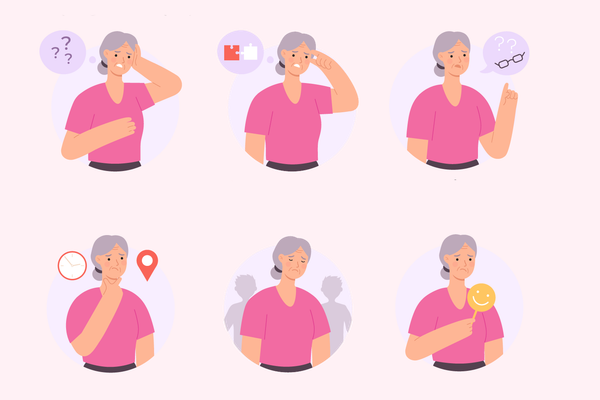By Tracy Layden
Between forgetting names and misplacing keys, we are all familiar with the frustration of forgetfulness. But memory loss due to aging is more than just frustrating. It can be heartbreaking. Even worse, there is no clear-cut cure.
When Dad (or Mom) is having trouble with memory, it's important to remember that this experience is just as hard for him as it is for you.
Although there is no single one-size-fits-all solution, dementia experts recommend the following tips to help your parent or other loved one through this difficult time.
Keeping a Routine
Structure and routines may make daily living less stressful for your parent—and you.
- Establish mealtimes. Serve and eat meals at the same time every day. Try to maintain an enjoyable and calm atmosphere during dinner so Dad focuses on the food.
- Create morning and nighttime routines. Getting ready in the morning and going to bed at night should be habitual so that Dad doesn't need to worry about what comes next.
- Make a place for everything. Help Dad feel in control by using clear plastic containers with clearly marked labels so that he knows exactly where everything is.
- Take on one task at a time. Dad will feel more in control if he has one thing to focus on. If he gets stuck, let him take a break and try again later. Concentrate on the process and not the results.
- Simplify choices. Choice can be overwhelming. Present Dad with only two options so that he can choose his favorite.
Communicating Effectively
Time and patience go a long way.
- Explain simply. Speak slowly and use short and simple explanations. Lengthy stories may be overwhelming for Dad.
- Give him time to respond. Conversations with Dad may become much slower than you are used to. Be patient and give him time to process his thoughts without interruption. You may gently suggest the thought or word he may be looking for.
- Avoid scolding. When Dad gets it wrong, it won't help to get mad. Instead, phrase corrections as suggestions. Try, "I think he is your grandson, Matt." Or, "I thought you lived here."
- Evoke memories. Remind Dad of the good ol' days. Pull out the photo albums and mementos. Reminisce about the important events, people and places in his life.
- Engage in his reality. Dad's mind may be stuck in the past. Participate in the conversation so that you can better understand where and when his mind is. It's OK if you can't bring him back to the present.
Managing Your Emotions
There's no doubt that this is a tough time. Dad will pick up on your emotions, even if he can't remember why. Take the time to take care of your physical and mental health. Both you and Dad will be better off for it.
- Remain calm. It's hard to not react when Dad doesn't recognize you or calls you by the wrong name. Try not to make your hurt noticeable. It may make him sad to see you upset and anxious because he doesn't know why.
- Don't take things personally. Dad may not be acting like the person you knew, but keep in mind that this is a stressful time for him, too. Try not to take hurtful comments to heart. He will appreciate your continual love and support.
- Share your experience. Don't go through this alone. Find a support community where you can share your experiences and get advice from others who are in the same boat.
Dealing with Memory Loss
When Dad has memory loss, the most important thing is to be there for him.
Be patient with him, and be patient with yourself. Your support and compassion will help him make the most of his golden years.
Tracy Layden is a Certified Aging in Place Specialist. Born and raised in Silicon Valley, California, Tracy leads the marketing efforts at Alert-1, a personal safety technology and consulting firm dedicated to helping seniors live safely and independently. Tracy holds a degree in mathematics from Scripps College.







